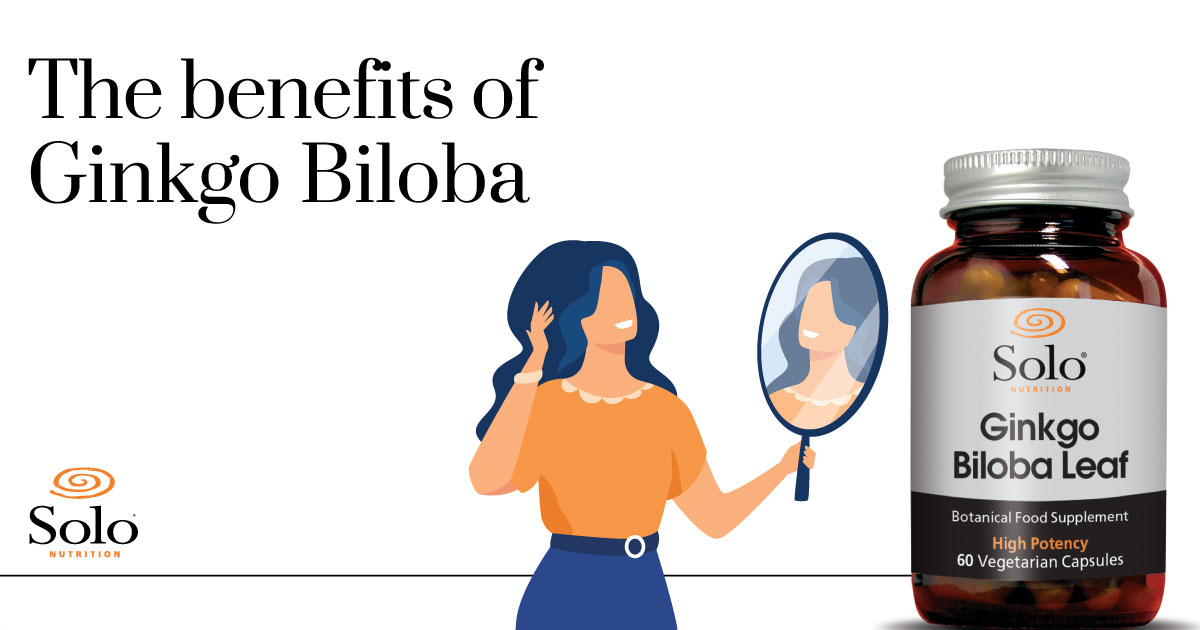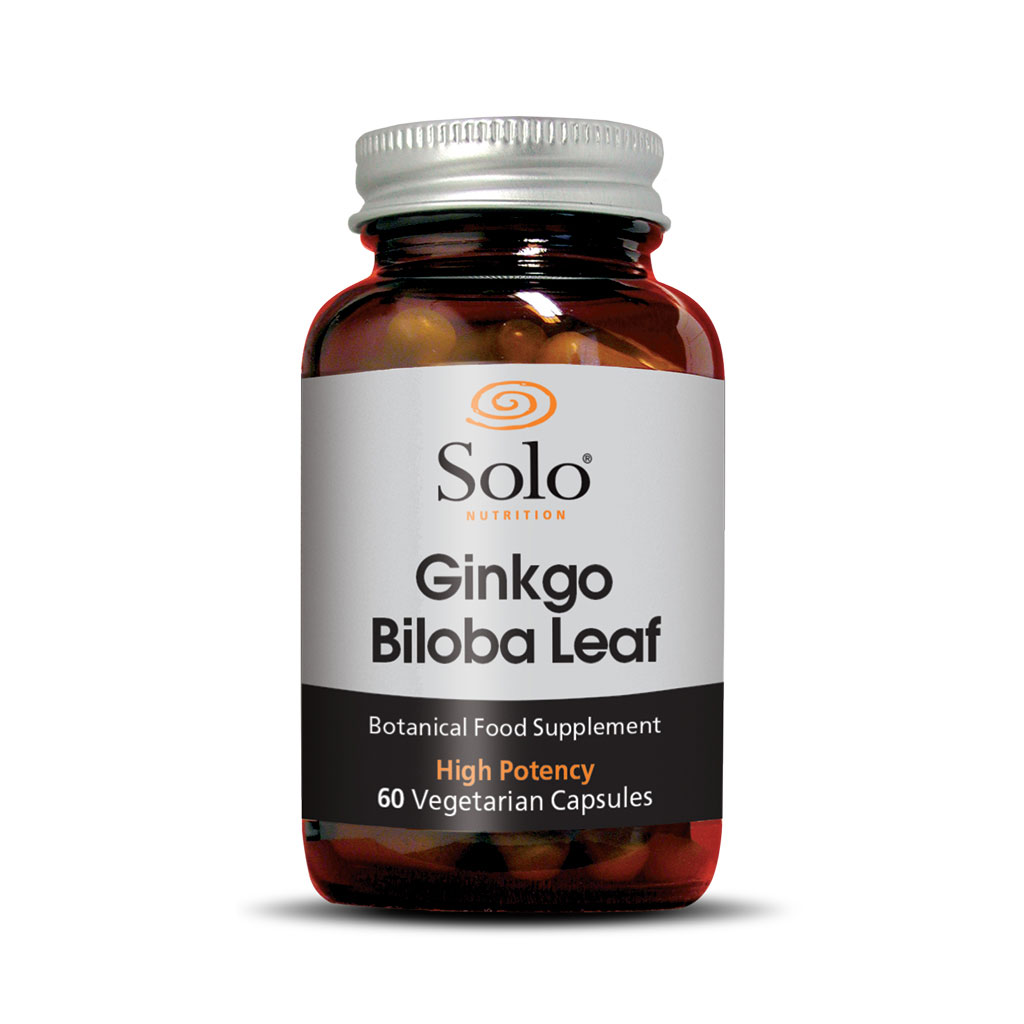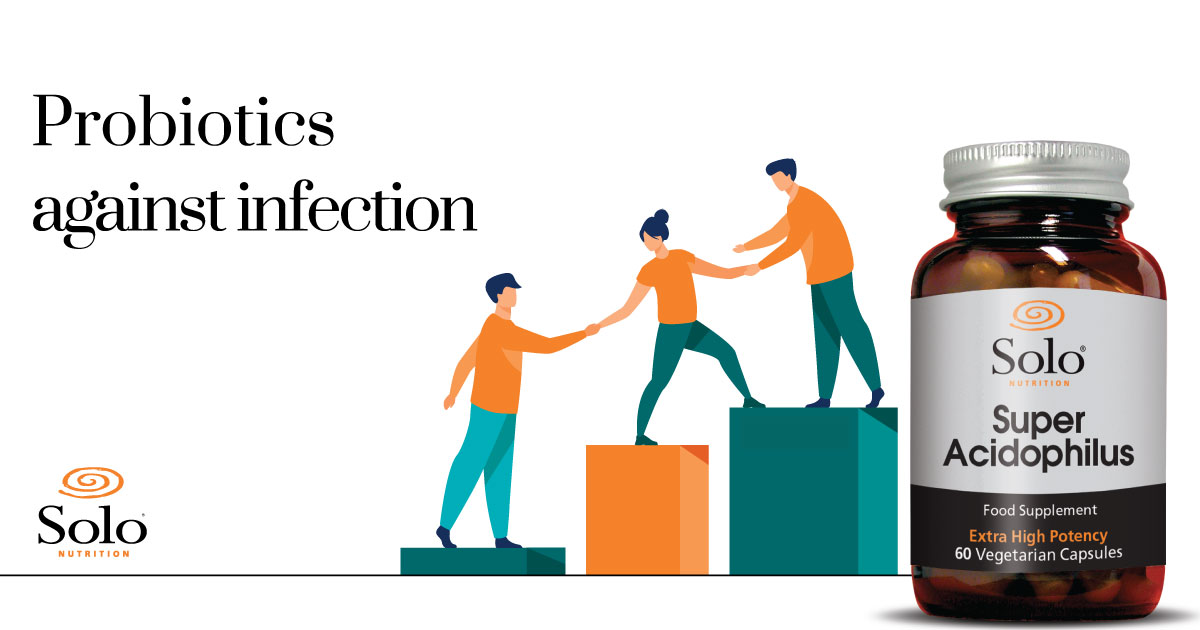
The benefits of Ginkgo Biloba
In this issue, Solo Nutrition looks at…The benefits of Ginkgo biloba (High Strength)
History
Did you know that ginkgo biloba is the world’s oldest living species of tree and can be traced back more than 200 million years? The tree, which grows in China, Korea, southern France, and southern and eastern parts of the US, can live up to 1,000 years. While the edible seeds of the ginkgo fruit are eaten as a food in the orient, it’s the leaves that are used for medicinal purposes.
Benefits
Probably the most well-known benefits of ginkgo biloba are in the treatment of age-related cognitive decline and Alzheimer’s disease. However, because of its effect on blood flow and circulation, it’s recommended as a remedy for many other conditions including macular degeneration, diabetic retinopathy, glaucoma, tinnitus, vertigo, erectile dysfunction and peripheral arterial insufficiency.
How does it work?
Ginkgo contains two major groups of active components – ginkgo flavone glycosides which make up 24 per cent of ginkgo extract, and terpene lactones which make up six per cent of ginkgo extract. The herb has several modes of action in the body. Firstly, it is a powerful antioxidant, helping to scavenge free radicals in the brain, the retina of the eye and the cardiovascular system. Secondly, it inhibits excess blood clotting, thereby preventing thickening of the blood and supporting blood flow to different organs. Finally, ginkgo increases the body’s production of ATP, which is the main source of cellular energy. This activity has been shown to boost the brain’s metabolism of glucose, vital for normal brain function.
Is there any research?
Numerous studies confirm that ginkgo helps improve memory loss. This is thought to be achieved by its ability to supply adequate glucose to the brain, in addition to increasing blood flow. The herb also appears to improve the brain’s use of acetylcholine, a chemical that allows the nerve cells responsible for memory, to communicate properly.
Eye conditions, such as those mentioned above, seem to improve with ginkgo supplementation – again due to its affinity with the circulatory system. Having antioxidant properties, it’s also able to slow down cataract formation, which is associated with free radical production.
In relation to cardiovascular disease ginkgo is a valuable remedy. In one study, 79 patients with intermittent claudication due to peripheral atherosclerosis received ginkgo or a placebo for six months. Pain reduction was four times greater in the ginkgo group than in the placebo group. Further analysis showed a significant increase in blood flow on the affected side in patients taking ginkgo, compared to a slight decrease in blood flow in the placebo group.
Although tinnitus sufferers often report an improvement in symptoms with ginkgo intake, some studies confirm these findings while others contradict them. However, according to Dr Ewart Davies of The British Tinnitus Association, “it must be remembered that ginkgo is an extremely safe material and that most people who take it report a better feeling of well-being. This of course allows patients to deal with their tinnitus rather better. So, if patients can afford it and they feel that their tinnitus eases, then they should continue to take it.”
Other promising areas of ginkgo research include depression, impotence, deafness, PMS and asthma.
Ginkgo Biloba Leaf is part of Solo Nutrition’s botanical and herbal range of remedies. Our Ginkgo Biloba is a high potency 6000mg standardised extract, enhanced with vitamin E and Rutin to complement its efficacy.
-
Sale
 Select options This product has multiple variants. The options may be chosen on the product page
Select options This product has multiple variants. The options may be chosen on the product pageGinkgo Biloba Leaf
Original price was: £24.75.£18.56Current price is: £18.56.



